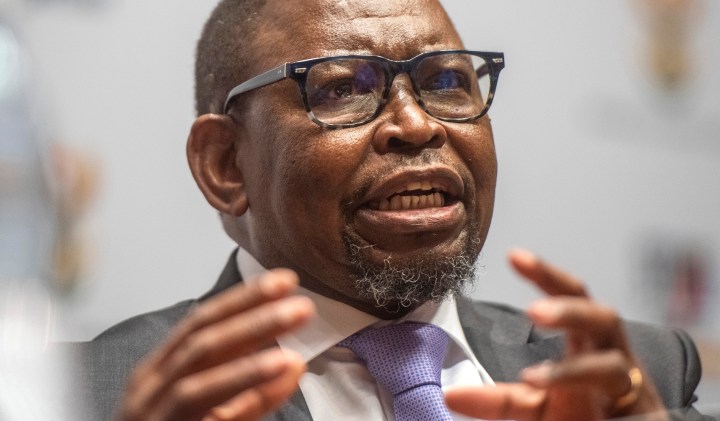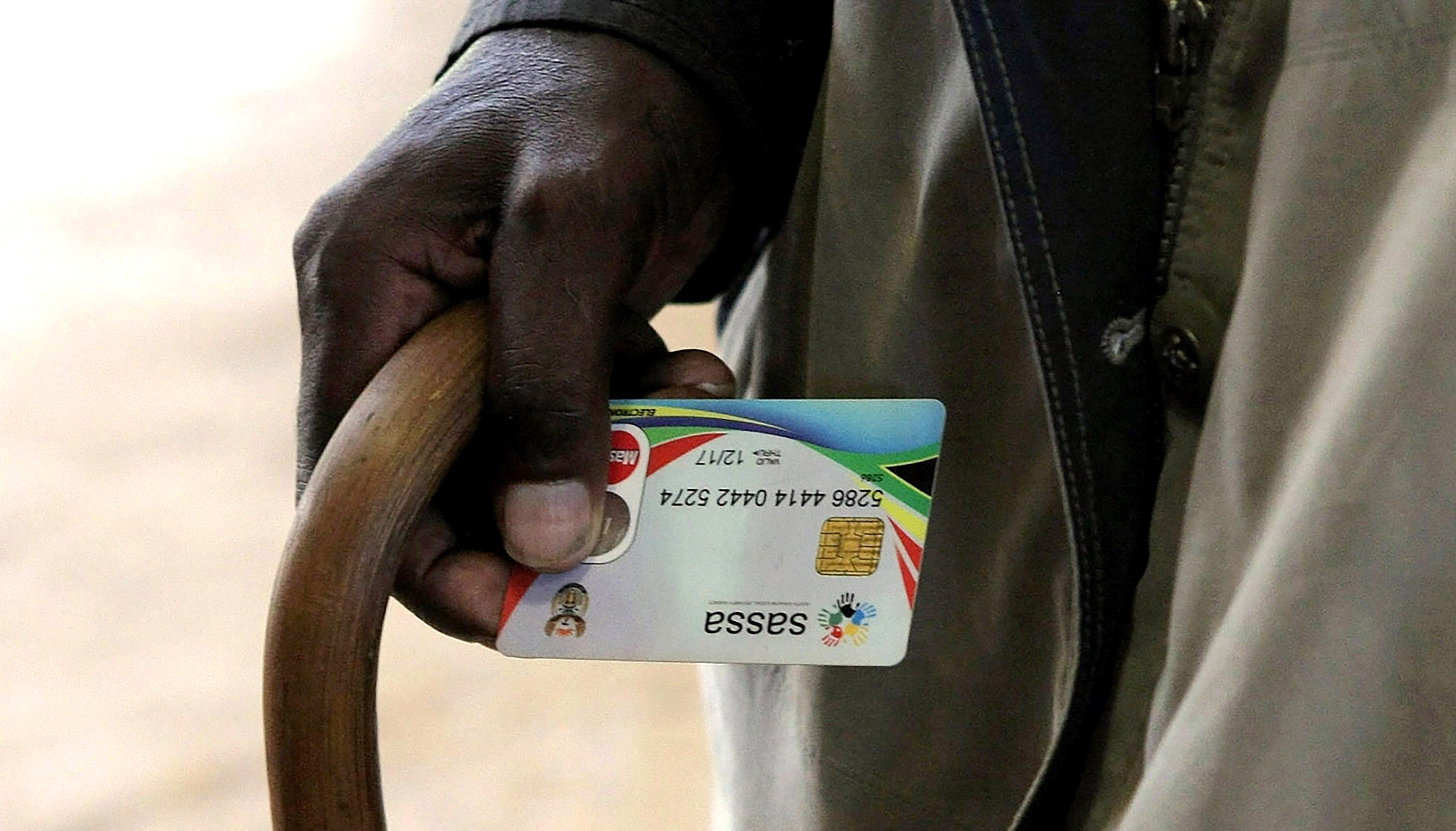MAVERICK CITIZEN EDITORIAL
Hopes persist Godongwana will make a case for a human rights-based Medium-Term Budget Policy Statement

If there is to be justice, our society needs a massive shift in thinking away from just the balancing of rands and cents towards a fairer and more equitable distribution of resources and services. There needs to be angling towards redress and ensuring that everyone in our society lives with dignity that is recognised as inherent and not determined by the social anxiety that comes with being relegated to a life of poverty.
On Wednesday 26 October finance minister, Enoch Godongwana will make the much-anticipated Medium Term Budget Policy Statement (MTBPS) which outlines the country’s macroeconomic context and sets the foundation for the three-year budget forecast, it also gives an overview of the spending by government departments.
In his maiden budget speech in February this year, newly minted minister of finance Enoch Godongwana made an undertaking that R44-billion would be allocated to the extension of the paltry R350 social relief of distress (SRD) grant and the extension was to be until March 2023. Since then the qualification threshold for the SRD grant has been increased to be at the food poverty line of R624 after various sectors of civil society contended that deserving people were being disqualified.

Millions of poor South Africans are likely to find out whether government will be implementing a basic income grant during the medium term budget policy statement on Wednesday 26 October. (Photo: EPA-EFE / Kim Ludbrook)
The SRD grant was introduced in April 2020 in lieu of those who had lost their jobs and income during the Covid-19 lockdown. Many people, particularly informal workers, were unable to travel to work and earn a living while many businesses had downsized staff or closed down completely. The country has yet to recover from this massiveeconomic blow and with the March 2023 SRD extension deadline looming, the questions keeping activists awake at night concern government’s permanent solutions to unemployment and basic income. There have been proposals — including from the #PayTheGrants campaign — as to what a basic income grant could look like.
Since June 2020, the #PayTheGrants campaign has been making the case for a basic income guarantee which would provide income for people between the ages of 18-59 and would be a more sustainable way to tackle poverty and inequality. The campaign argues that this type of guarantee would give people access to their full socio-economic rights of food, healthcare, housing and education. They have suggested that if this guarantee were set at the poverty line of R1,280 it would cost R500-billion and reduce the food poverty line to 0%. It is difficult to argue for a case where people are left to go hungry because providing financial aid is too expensive. However, Treasury and the business sector have argued that it is just not affordable given the country’s ‘fiscal constraints’.
Visit Daily Maverick’s home page for more news, analysis and investigations
In September, the Institute for Economic Justice (IEJ) also raised the alarm that the National Treasury, together with the presidency, would instead introduce what they termed a ‘regressive’ proposal which would potentially exclude millions of vulnerable people by introducing a household grant or a jobseekers grant. The organisation goes on to say, “This seems to draw largely from a 2021 World Bank proposal for replacing the SRD grant with a jobseekers’ grant aimed only at active jobseekers. This is highly problematic:
- It assumes that jobs exist in the economy for people to ‘seek’, ignoring the structural nature of South Africa’s persistent unemployment and the failure of existing job-seeking databases and skills development programmes to produce any real change.
- It rests on the fundamentally patronising and moralistic assumption that without such conditionalities, grants are likely to increase dependency and laziness; something which is not supported by any of the evidence from South Africa or globally.”
On the proposed household grant by Treasury, the IEJ was of the view that: “In targeting household heads, not household members, it will radically reduce the number of beneficiaries, lessen the poverty-reducing impact of households pooling a number of individual grants, and limit the positive impact that social grants can have on women’s autonomy. In this, it is fundamentally anti-poor”
Predictably, much of the speculation on the MTBPS has been about the minister’s pronouncement on what policy positions will be adopted in order to stimulate jobs and business growth, — implied as the only ways to alleviate poverty. However, this is something that civil society is challenging, most notably by writer and researcher specialising in political economy, development and public health, Hein Marais.
According to Marais, it is impractical to rely on job stimulation in an economy where the job market is shrinking and shows no signs of ‘bouncing back’. Discussing ‘the crisis of waged work’ he explains, “It’s not just a matter of jobs becoming scarcer; they’re increasingly insecure and badly paid. That’s because many of the gains workers won from the late 19th century onward have been clawed back in the past three to four decades.

The social relief of distress grant was introduced in 2020 as a Covid-19 emergency relief initiative. (Photo: Gallo Images / Sowetan / Sandile Ndlovu)
“Work that is decently paid and stable is very rare in ‘developing’ economies and it is becoming increasingly atypical in ‘developed’ ones.”
Marais goes on to state soberingly, “Even the International Labour Organization acknowledges now that ‘employment is not a guarantee against poverty’. It estimates that more than half of workers in Africa and one-fifth of the 3.3 billion people employed worldwide in 2019 (or 630 million people) were living in ‘extreme or moderate poverty’ (that is, they were living on less than $3.20 per day in purchasing power parity terms).”
According to Marais, a function of the capitalist economy we live in is that it is able to generate wealth but what it does not do is generate enough jobs for those of working age and even the few who have jobs are not guaranteed to not be poor.
The challenge that has been laid at the door of not only Treasury but the South African government is envisioning what a human rights-centred economic framework would look like — one that centres on the well-being of all those who live in South Africa and not only those who are employed and have access to massive resources. Will civil society’s voice finally be heard? DM/MC

















“The problem with socialism is that you eventually run out of other people’s money.” Margaret Thatcher.